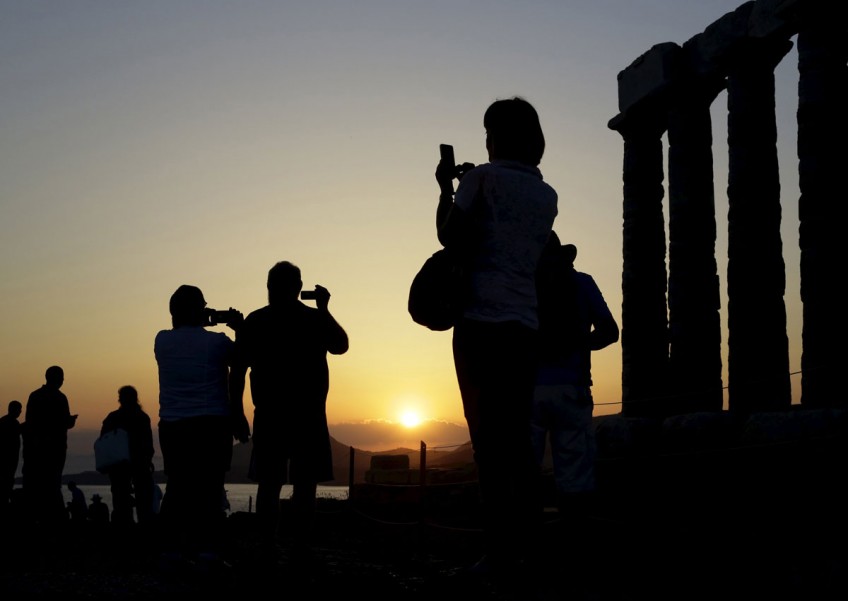Online travel reviews don't always fly


There's something infinitely reassuring about belonging to a group. It could be Mensa or the Three Stooges. No matter. Man is a social animal and has an ancient built-in tribal instinct to herd.
Groups, or forums as they are termed in modern parlance, are as comforting as they are confusing. The bigger the group, the more the gobbledegook. Simply put, debates can be meaningful and focused when numbers are small, but results dissipate and issues meander as membership grows and, with it, the range of opinion, ignorance and peevishness.
In the online world, the solution is to quantify everything and thereby attach some sort of scientific significance to the results. TripAdvisor is a case in point.
With thousands of comments on just about everything, travellers need to be presented an average score. And this score is, in turn, open to manipulation by fraudsters and pranksters, or inadvertent misrepresentation by those not really qualified to assess the subjects in question.
I once read an impassioned review on TripAdvisor where the contributor stated that Holiday Inn Express in Hong Kong (Causeway Bay) was the "best hotel I have ever stayed at". Nothing wrong with that. It was an honest and detailed account. But it was written by a young teenager on his first trip out of Scotland with his mum.
Reviews like this are what determine an average score. And it is precisely this that makes it difficult for business travellers or luxury trippers to take casual rants too seriously. Savvy travellers will of course separate the lamb from mutton, but many less knowledgeable view online blather as gospel.
Mob advice
It's not that TripAdvisor is doing anything wrong. It is a forum, and an excellent one at that, with several checks. Yet it gets things wrong time and again. Think of it as a "bus stop test".
Say you have a frightful headache and your ears are turning green after aliens landed in your backyard and zapped you with a photon laser. You walk down to the bus stop where 20 people are standing, and ask for an opinion - you'll get 20 random views, some sensible, some snarky, some silly.
The pitfalls of this approach are immediately clear. A smart person would go straight to a doctor for professional advice, or immediately flush the hallucinogens.
Yet when it comes to travel, we seem to prefer mob advice - patently the poorest choice when it comes to judgment.
Remember Pontius Pilate and the rabble? Bieber goes platinum while Bach and Beethoven stay firmly on the B-list, despite record companies amusingly repackaging Beethoven's Greatest Hits. Crowds go for the simplest, dumbed down acts, never ones of quality - not in the Roman Coliseum, not anywhere.
The other issue with crowd-sourced ratings is that the most active people online are the youngest and most inexperienced when it comes to luxury stays, romantic honeymoons in the Maldives, business-class seats or the relative merits of frequent-flyer baggage allowances when your wife insists on carting all her possessions for that beach holiday.
This is why TripAdvisor does well with budget, three-star and boutique hotels that attract younger, less discriminating customers - but fails grievously when it comes to premium brands.
Kids will endlessly upload pictures of cute slippers and soaps to Facebook, where they will arouse a huge amount of chatter. Impoverished teens are great brand ambassadors for fun, low-end products.
Wealthy chief executives staying at a Peninsula or Mandarin Oriental are less likely to upload pics of their strawberry dessert to Facebook. They might send a nice, handwritten postcard - or e-mail - to mum. The online brand amplification is minimal.
Yet CEOs set the trend for luxe digs, not through FB and WeChat (though some nowadays prefer Twitter), but through word-of-mouth, the old-fashioned way.
Their few words carry disproportionate weight as they are significant role models with a patronage base. Business travellers will tend to follow this inside-track discourse - not disarmingly frank Scottish teens.
Wonky complaints
Herds on budget tours are not connoisseurs of the experience and to make this point, here are some complaints received by Thomas Cook and the Association of British Travel Agents from irate travellers:
"No one told us there would be fish in the sea. The children were startled."
"It took us nine hours to fly home from Jamaica to England; it only took the Americans three hours to get home."
"The beach was too sandy."
If only we could work out an average score to help you out.
myp@sph.com.sg
The writer is editor of Smart Travel Asia. This article first appeared in The Business Times on Saturday.

Get MyPaper for more stories.